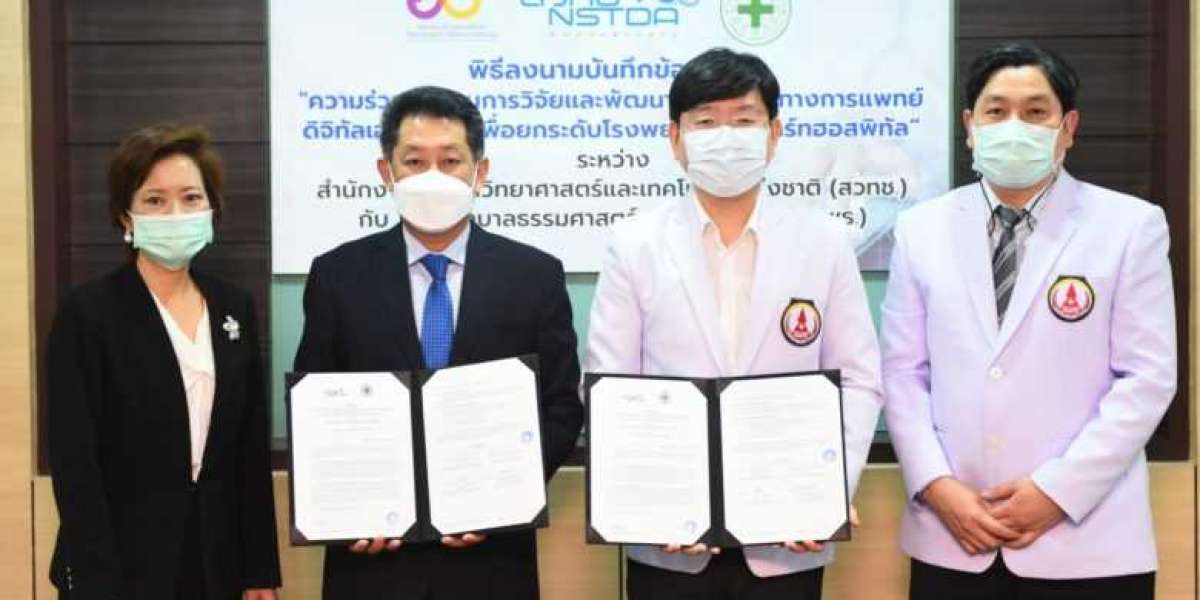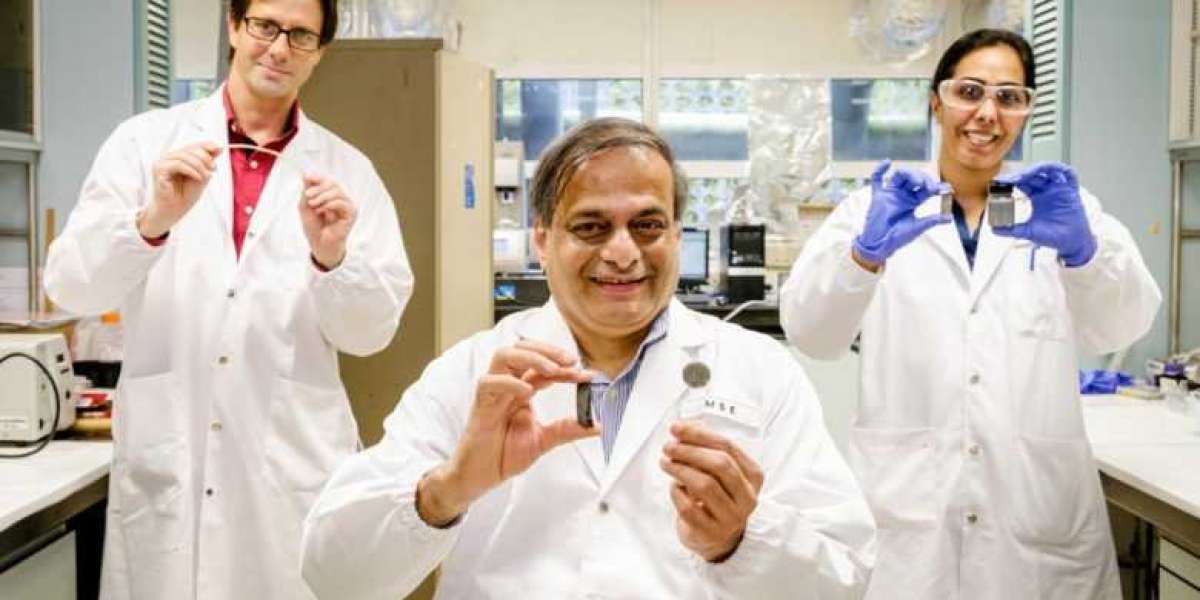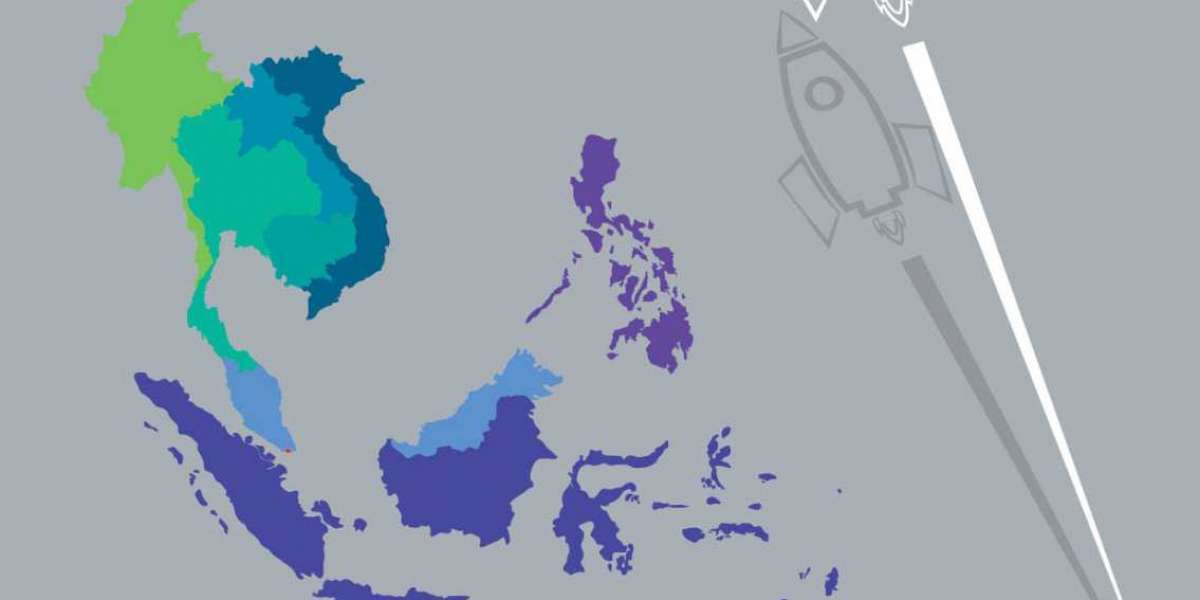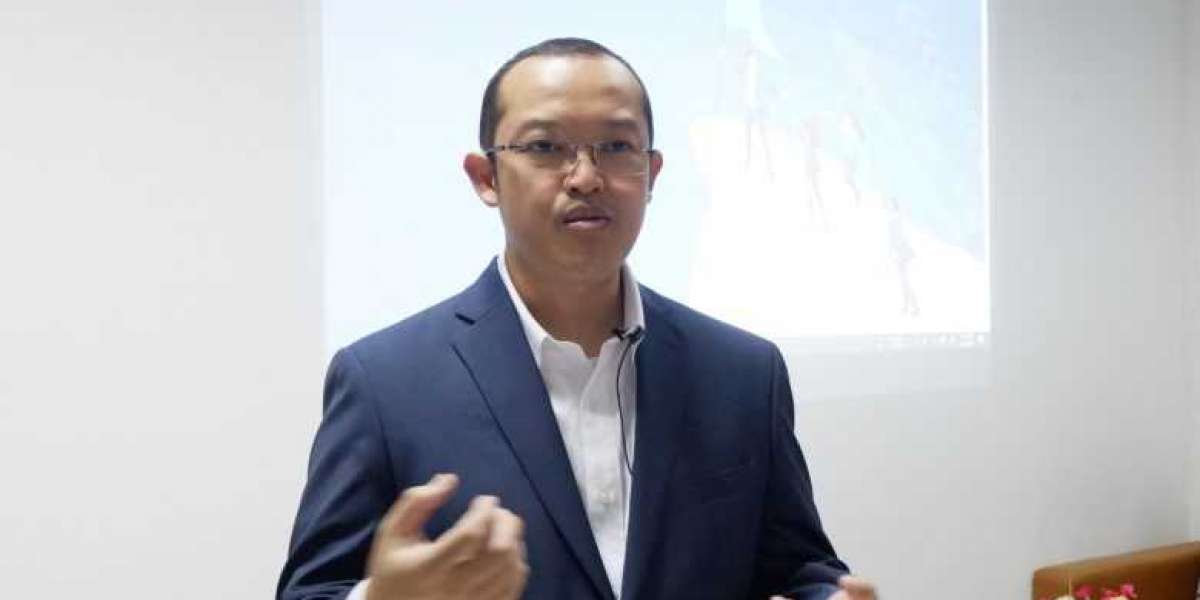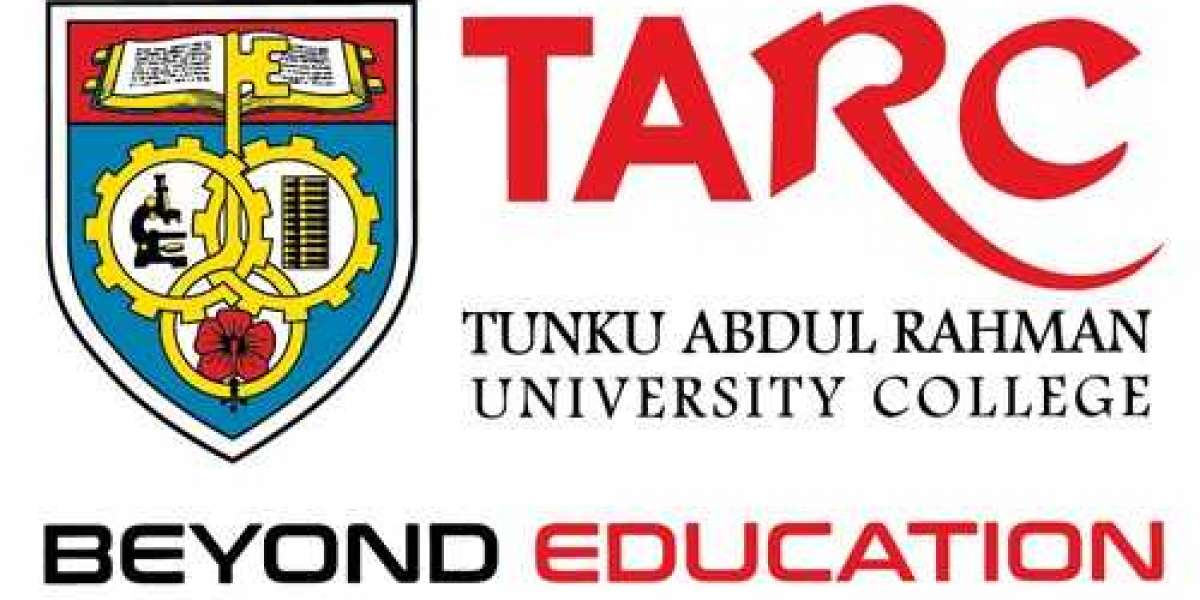Ministry of Higher Education, Science, Research and Innovation by the National Science and Technology Development Agency (NSTDA) in collaboration with Thammasat University Hospital have signed an MOU for the ” Research and Development Collaboration Project on Digital Healthcare to develop the Smart Hospital”.
The project promotes and encourages the production of smart healthcare and digital healthcare innovation, preparation and streamlining of hospital operations by applying digital technology integrated with information systems (digital transformation) for 5 years to improve service quality and management system for being the Smart Hospital.
Dr. Narong Sirilertworakul, Director of NSTDA, said, “NSTDA focuses on enhancing research, development, design and engineering as well as utilization. In addition, we are supporting the development of man power and the necessary scientific and technological infrastructure in order to leverage competitiveness and develop the nation sustainably.”
NSTDA carried forward research and development of medical devices including joint testing of medical innovations of Assistive Technology and Medical Devices Research Center (A-MED), National Metal and Materials Technology Center and National Electronics and Computer Technology Center in collaboration with Thammasat University Hospital, which include DentiiScan, BodiiRay S, RD collaboration of voice-controlled smart infusion device, and temperature screening efficiency test with Mutherm at the entrance to the hospital and patient screening point.
Currently “UNAI” system has been deployed for providing indoor positioning service in order to magnify the outcomes of the utilization of research results in terms of tracking medical devices inside the hospital along with the energy monitoring system and medical device management system.
“The collaboration with Thammasat University Hospital aims to develop, promote and encourage the production of research, innovation and medical products e.g., medical devices, software, accurate technology, supplies and products as well as expansion and encouragement of practical use, technology transfer and commercial and industrial use which will strengthen the advanced medical research and push forward innovation development and medical technology for new technology businesses of healthcare in Thailand,” explains Dr.Narong Sirilertworakul.
“This also increases opportunities for the development of Thai entrepreneur and startup potential according to the BCG model policy that aims to carry forward research and development for medical economics in order to enhance the competitiveness of Thailand in the international trade,” said Dr. Narong Sirilertworakul. Associate Professor Dr. Paruhat Tor-udom, Director of Thammasat University Hospital, said, “TU Hospital is a high-level university hospital with the capacity to provide comprehensive healthcare in all areas. It accepts referrals from other hospitals and offers outpatient, inpatient and accident and emergency services.”
“In 2020, the hospital provided 741 beds and had an average 5,392outpatient visits/day and 71% inpatient bed occupancy aiming to use technology and innovation to provide excellent medical car services, management and academic matter, and to support its staff, people and society with the vision of ‘TUH 4.0 Organization of the Future for All’.”
“In this MOU signing ceremony, TU Hospital aims for a collaborative research process to develop new medical innovations, including further development from the original projects and encouragement of practical or commercial use. It started with the project of prototype development to track the location of the medical device with the “UNAI” platform and record the hospital electricity consumption for the Utilization Management system of the medical devices,” said Associate Professor Dr. Paruhat Tor-udom.
“This will enable efficient management of medical devices under limited resources. It is expected that the results will be expanded to UHOSNET that conducts the research with the joint cost. TU Hospital is available to support healthcare knowledge, budget, personnel, and to be a learning resource providing hand-on experiences in order to achieve the goals with the collaboration that will offer utmost benefits to people and the country,” concluded Associate Professor Dr.Paruhat Tor-udom.
